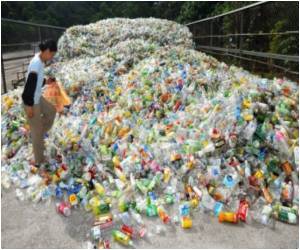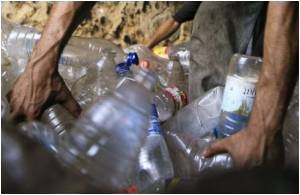Many subalpine lakes may look beautiful and even pristine. But new evidence suggests that they may also be contaminated with potentially hazardous plastics.

The findings, based on studies of Italy's Lake Garda and reported on October 7th in Current Biology, a Cell Press publication, suggest that the problem of plastic pollution isn't limited to the ocean.
"Next to mechanical impairments of swallowed plastics mistaken as food, many plastic-associated chemicals have been shown to be carcinogenic, endocrine-disrupting, or acutely toxic," said Christian Laforsch of the University of Bayreuth in Germany. "Moreover, the polymers can adsorb toxic hydrophobic organic pollutants and transport these compounds to otherwise less polluted habitats. Along this line, plastic debris can act as vector for alien species and diseases."
Source-Eurekalert









